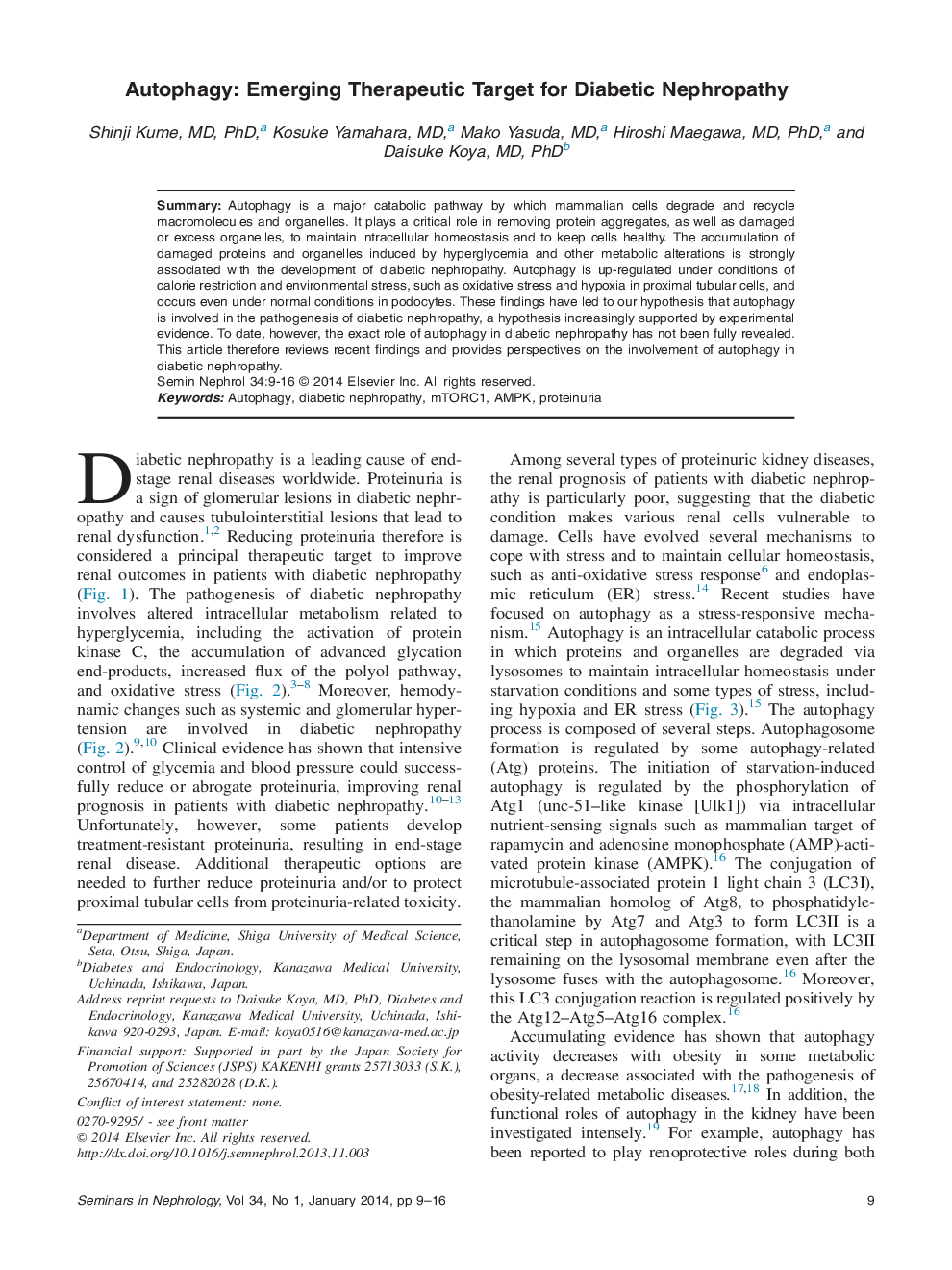| Article ID | Journal | Published Year | Pages | File Type |
|---|---|---|---|---|
| 3896800 | Seminars in Nephrology | 2014 | 8 Pages |
Abstract
Autophagy is a major catabolic pathway by which mammalian cells degrade and recycle macromolecules and organelles. It plays a critical role in removing protein aggregates, as well as damaged or excess organelles, to maintain intracellular homeostasis and to keep cells healthy. The accumulation of damaged proteins and organelles induced by hyperglycemia and other metabolic alterations is strongly associated with the development of diabetic nephropathy. Autophagy is up-regulated under conditions of calorie restriction and environmental stress, such as oxidative stress and hypoxia in proximal tubular cells, and occurs even under normal conditions in podocytes. These findings have led to our hypothesis that autophagy is involved in the pathogenesis of diabetic nephropathy, a hypothesis increasingly supported by experimental evidence. To date, however, the exact role of autophagy in diabetic nephropathy has not been fully revealed. This article therefore reviews recent findings and provides perspectives on the involvement of autophagy in diabetic nephropathy.
Related Topics
Health Sciences
Medicine and Dentistry
Nephrology
Authors
Shinji MD, PhD, Kosuke MD, Mako MD, Hiroshi MD, PhD, Daisuke MD, PhD,
